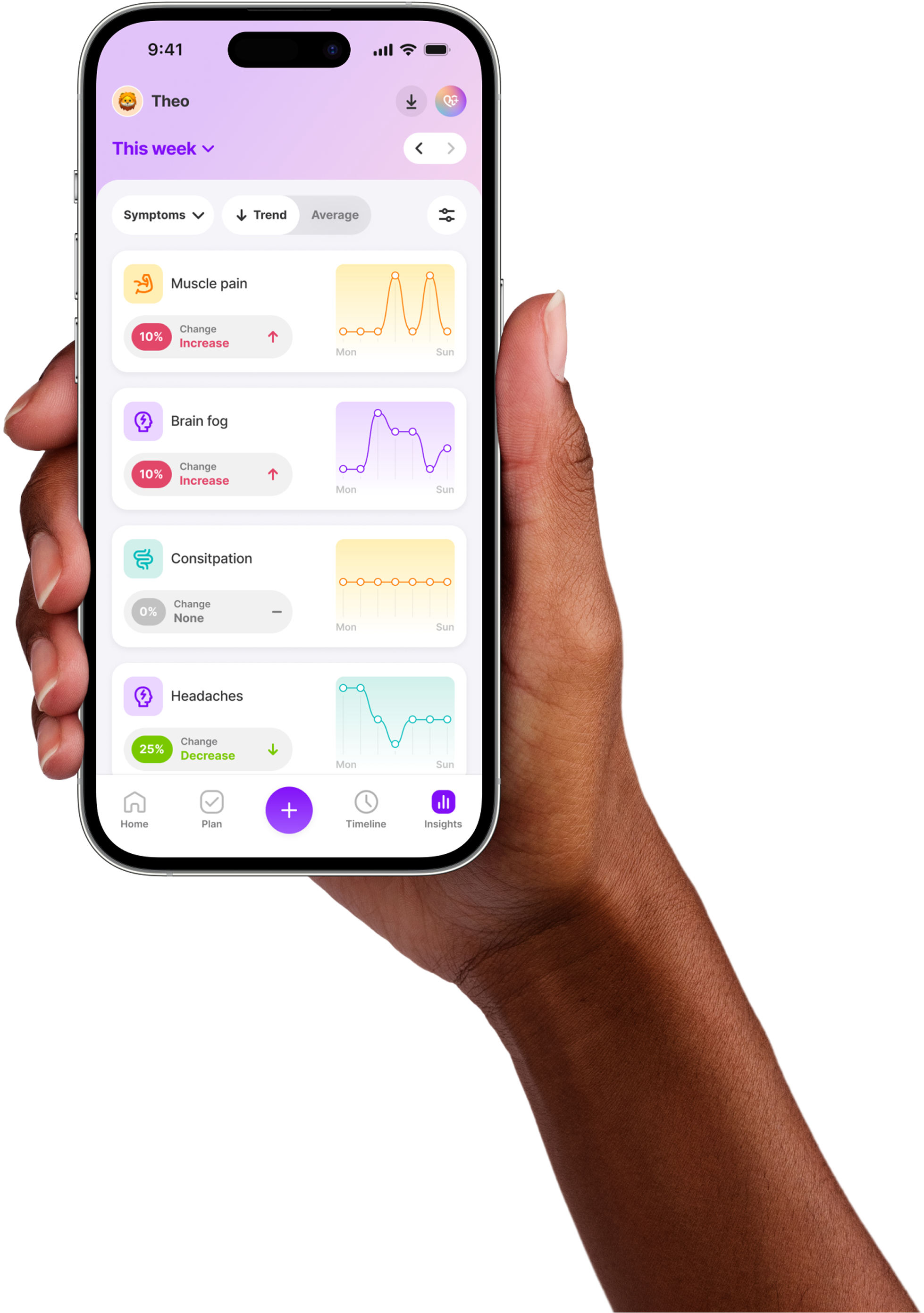
leading doctors & scientists
A chronic illness symptom tracker is a tool that helps you record and monitor your symptoms as they shift over time. When you live with a condition that brings overlapping or unpredictable symptoms, it can be hard to see the bigger picture. Tracking gives you a clearer view of what’s happening, so you can spot changes, prepare for appointments, and feel more in control of your health journey.
While only a doctor can confirm a diagnosis, keeping a record of your daily experiences may support better conversations with healthcare providers.


Learn how your conditions affect you
Record how your symptoms impact you day-to-day, and see how they change over time.
Understand your flare-ups
Get insights about what makes your symptoms better or worse by identifying patterns in your symptom changes.
Get custom treatment reminders
Set notifications for what's coming up, so you never miss another dose or consult.
Real health data
Keep everything that matters to you in one place, and share summaries with your care team to make advocating for your health easier.
“I have never taken a questionnaire like the symptoms survey in Human Health, and i wish it would be available in more clinics and counselling centers. It truly made me feel seen and heard, and that i am not alone.”
“I have never taken a questionnaire like the symptoms survey in Human Health, and i wish it would be available in more clinics and counselling centers. It truly made me feel seen and heard, and that i am not alone.”
“I have never taken a questionnaire like the symptoms survey in Human Health, and i wish it would be available in more clinics and counselling centers. It truly made me feel seen and heard, and that i am not alone.”
“I have never taken a questionnaire like the symptoms survey in Human Health, and i wish it would be available in more clinics and counselling centers. It truly made me feel seen and heard, and that i am not alone.”
“I have never taken a questionnaire like the symptoms survey in Human Health, and i wish it would be available in more clinics and counselling centers. It truly made me feel seen and heard, and that i am not alone.”
Log how symptoms affect daily life
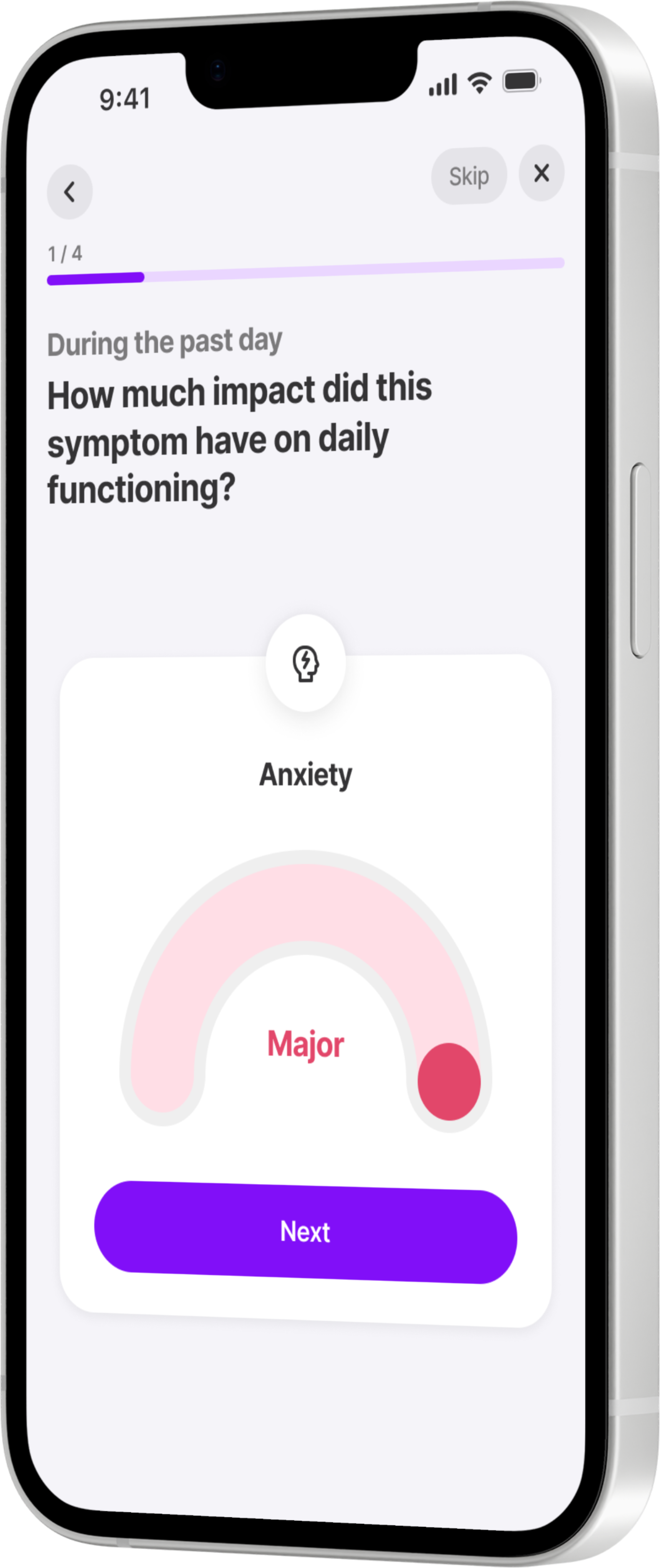

Choose symptoms that impact you
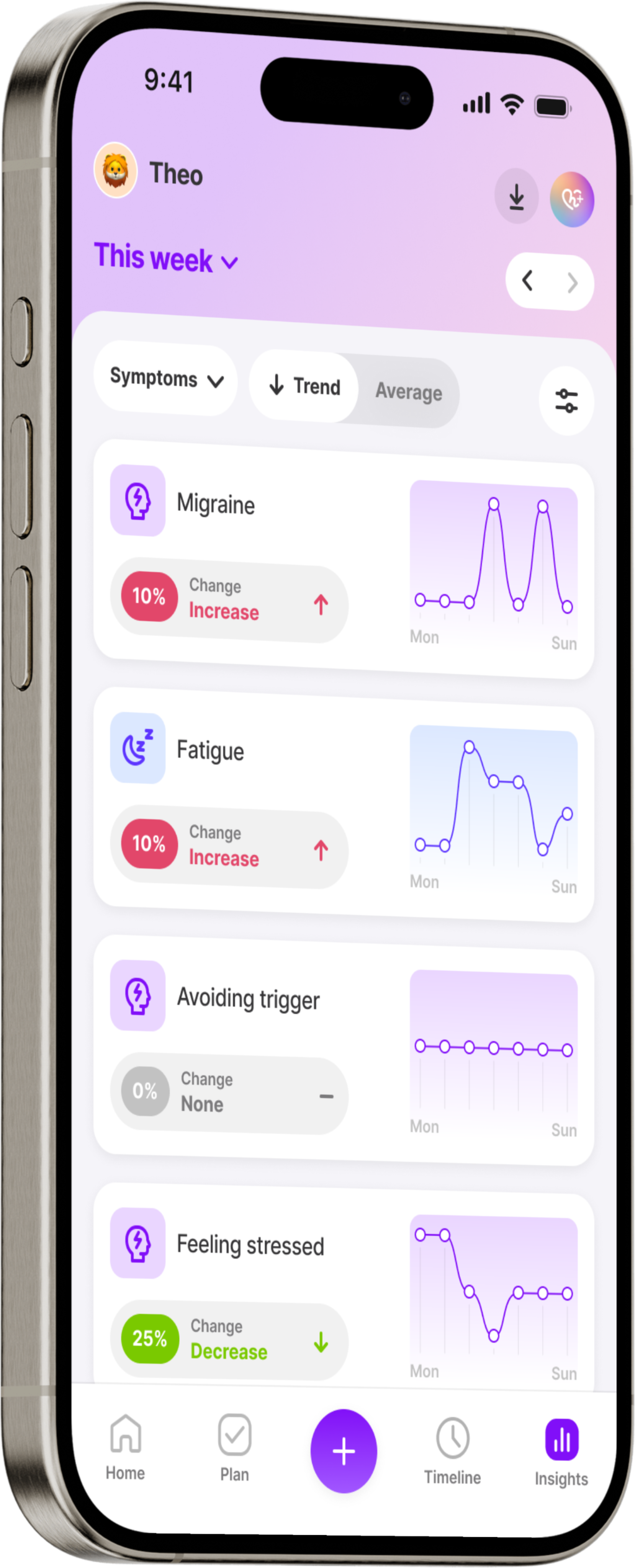
Choose symptoms that impact you

Add notes alongside your symptom logs
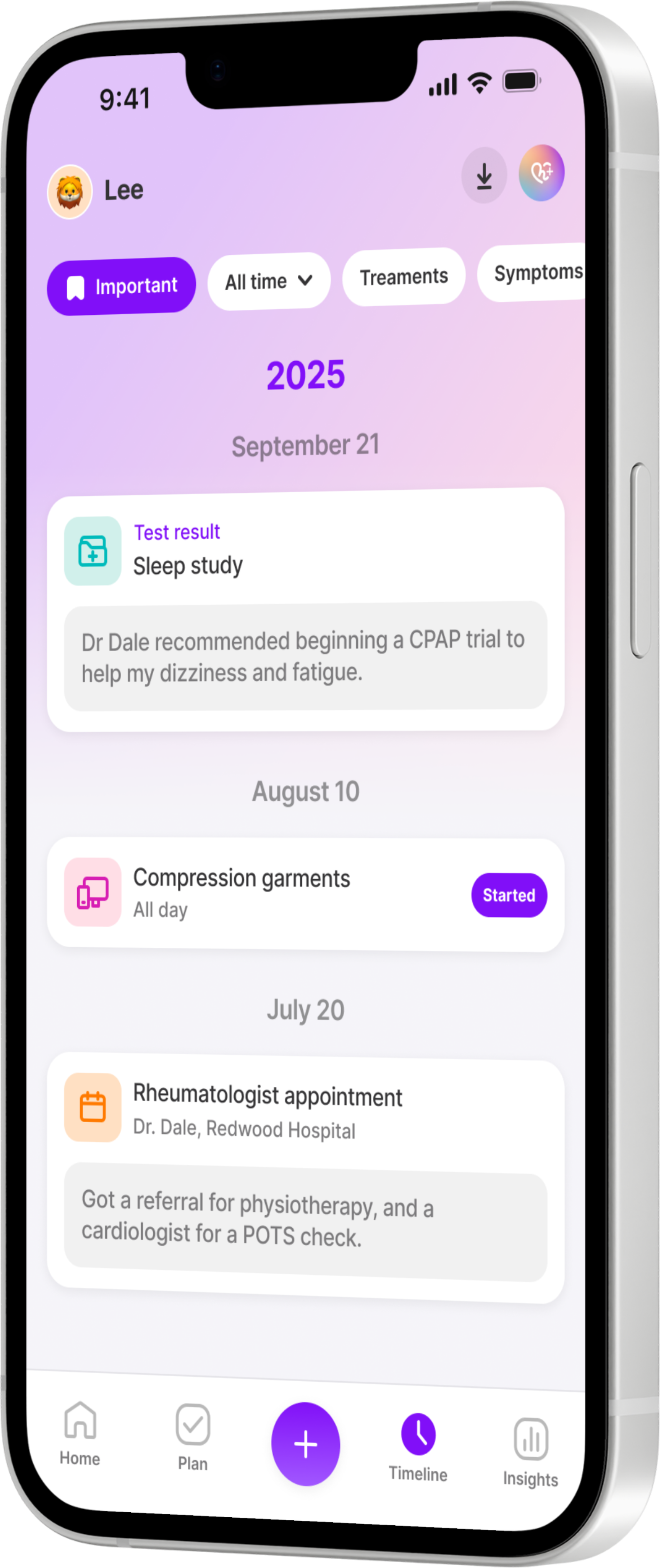

Track flares and triggers over time
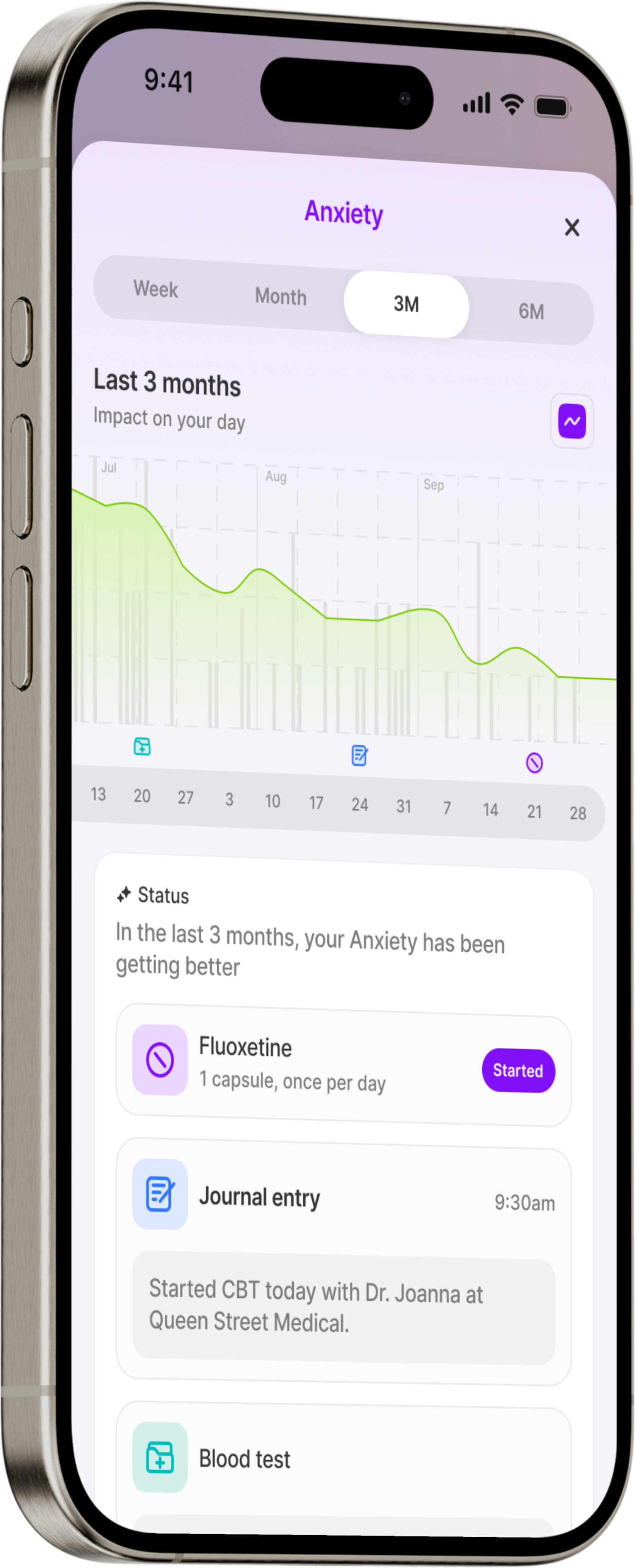
Track flares and triggers over time
.png)
Export customizable summaries for your care team

.png)

Sign up for a free account
Add your conditions to your medical history and start tracking symptoms relevant to you.

Log symptoms and flare-ups as they happen
Keep track of when your symptoms are triggered and how much they're impacting you day-to-day.
.png)
Get insights into your symptom patterns
Learn how your symptoms are changing over time, and see patterns in what makes them better or worse.

Share summaries with your care team
Learn how your symptoms are changing over time, and see patterns in what makes them better or worse.
Yes. Many people live with more than one chronic illness, and the app supports that reality. You can track over 1,000 conditions and 1,700 symptoms in one place. For example, someone with lupus and migraines can log flares, fatigue, and headaches side by side, making it easier to see the full picture rather than keeping separate records.
By logging regularly, you may notice connections that aren’t obvious in day-to-day life. For example, a person with fibromyalgia might see that pain intensity tends to spike during periods of poor sleep, or that fatigue worsens after certain foods. The app doesn’t diagnose or confirm causes, but it helps you bring evidence-based observations to your providers.
Yes. Human Health suggests symptoms commonly linked to chronic conditions, but you’re not limited to a preset list. You can add your own so your tracking reflects your unique experience. This flexibility is especially useful when your condition doesn’t fit neatly into standard categories.
You can use the app to record when flares begin, how long they last, and what you were doing beforehand. Over time, this can highlight potential triggers (such as stress, hormonal changes, or weather patterns). Many people bring these records to their providers to discuss flare prevention strategies or adjustments to treatment.
That’s common with chronic illness. The tracker is designed to capture those shifts, whether symptoms are stable for weeks or different every day. Even if the picture looks inconsistent, logging over time helps reveal patterns and gives your providers a more accurate view of your condition.


.png)







.png)





.png)
